At age 77, Elaine boarded the first plane of several that would bring her to where we waited aboard our sailboat, Black Angel, in the San Blas Islands off the Caribbean coast of Panama. Accompanied by her husband, she would travel a few thousand miles by jet plane, train, open-air bus and taxi. All of that got her poised for the final leg of her journey to our anchorage at Porvenir.
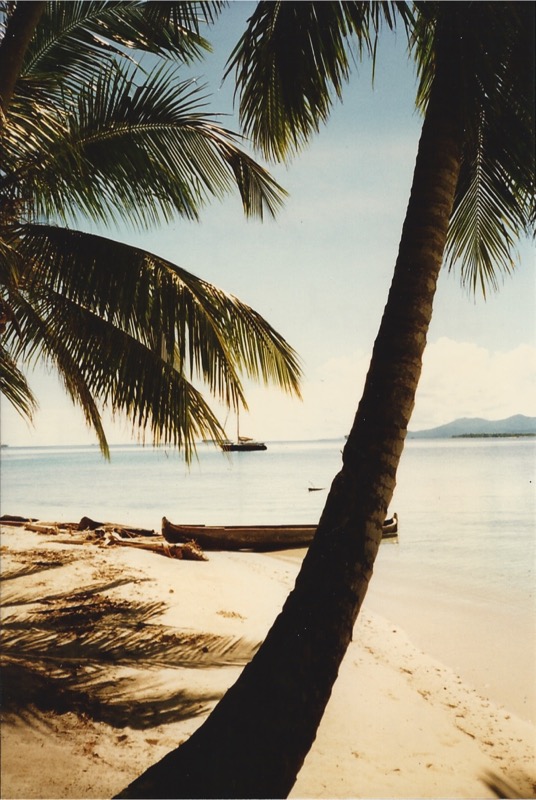
Black Angel at Isla Gunboat, San Blas Islands
On the Panamanian mainland, she boarded a single-engine Cessna that locals called the “Lobster plane”, whose function was to haul blocks of ice out to the islands and bring fresh lobster back to the mainland. Elaine and her husband, Marsh, climbed into the tiny plane, taking the place of a few of those ice blocks, buckled their suspect seat belts and prayed for a short flight. It was. It ended on a landing strip of packed sand, bumping along until it came to a complete stop and the erstwhile lobster-ferrying pilot threw open the door to the moist breeze of a Caribbean morning. We waved hello in our sarongs and bare feet, not bothering to shout over the engine’s noise.
Osteoporosis had already robbed Elaine of more than 6 inches of her original height. Cataracts had turned her visual world a slightly hazy yellowed version of an old polaroid. Friends and family speculated before the trip: Was Elaine too frail? What was the point of making such a strenuous journey? There were rumblings of doubt about her stamina. I know Elaine wondered those same things. Were her traveling days at an end?
Why go to the effort? Answer: because she had never been there before. And because my husband, Brian, was her youngest child. The chance to visit her far-flung family always trumped any difficulties encountered.
Brian offered a hand to his mother and father, helping them out of the plane’s cramped quarters and together we got them and their meager bags into our dinghy. Moments later they were sitting in the cockpit of our 45-foot sailboat, relating every moment of their trip so far and savoring the next couple of weeks with us. Elaine’s face, lined with age and experience, and weary from two days of complicated travel arrangements, also showed something else. Joy.
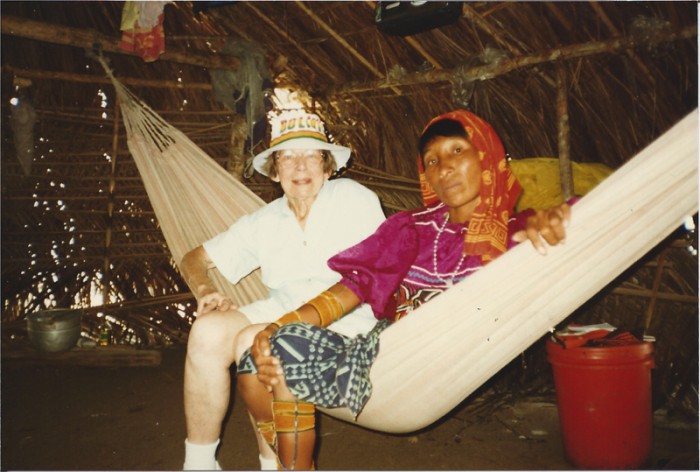
Elaine & a new friend, Adelina @ San Blas Islands
Theirs is a family of travelers. Adventurers with a tradition of selecting destinations based on what there might be to explore and for the area’s history. To question why? is nonsensical. Why not? makes for a good starting point and for the best adventures along the way.
I grew up on the flip side of that coin. My family did not have a travel culture; we went “to the lake”, which is what people in Minnesota say when they spend a couple of weeks each summer going to their cabin on a lake outside the metropolitan area where they live, to swim and fish and spend time in a part of nature where they are most at home. I discovered slow travel on my own, when I realized my travel style did not match those of my friends and family.
***
According to the Merriam-Webster dictionary, the etymology of the words travel and travail come from the Middle English root travailen. To “torture, labor, strive, journey,”. Those folks in the Middle Ages knew what they were defining: travel for them was torturing. Roads were awful or non-existent; places to sleep far apart and uncomfortable; danger imminent around the next curve. Modern travel is far easier, but not everyone chooses to stay on paved roads and sleep in 4-star hotels. Some of us enjoy the travails of travel. We define ourselves by a willingness to forego comfort and luxury to travel close to the local culture and more slowly.
Elaine traveled much of her adult life, following in the footsteps of her older brother by venturing to Europe on her own not long after World War Two had ended. She told me that she carried a long, wickedly sharp hat pin in those days, to protect herself from wayward hands on buses and trains. In the early 1950s she went back to Europe, this time with a husband and infant son. Friends and family wondered if that trip was ill-advised, just as they did nearly 50 years later when she visited us on our boat. After all, they said, you should not travel to Europe with a brand-new baby!
“Well,” her mother told her, “they have babies in Europe, too.” The little family went by trans-Atlantic ship, and kept on traveling in Europe for the next four years.
***
Aboard our sailboat in the western Caribbean, Elaine soaked up sun, took a turn or two at the wheel, and snorkeled in the warm, clear waters of the San Blas Islands. Floating there she could forget her fragile bones, relieve the pain, and deep-six any ideas of waning stamina. She snorkeled longer than we did and her renewed sense of wonder at the under-sea coral gardens kept her poring over sea-life identification books we had onboard.
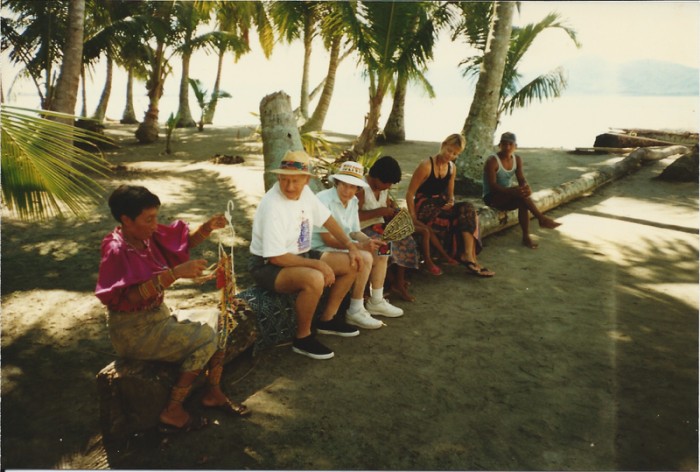
Visiting a family at Isla Gunboat, San Blas Islands
At every island we stopped to anchor, Elaine made friends with local Kuna indians, patiently listening to their stories of family life while stretching out in a hammock, or helping a child learn a few words of English.
When she and Marsh left us two weeks after they had arrived, they did not do what most 77-year-olds would do, which is to get onboard a return flight home, kick off their orthopedic shoes and live off their adventure for the remainder of their lives. Instead, they got on a local bus—a series of vehicles actually, including a jouncing ride in the back of a pick-up truck—and journeyed further. They headed up through Central America, taking a looping route through every country in the region. Several weeks went by before they felt the call of their lakeside home in Minnesota strongly enough to return to it, wearied from traveling but buoyed by encounters along the way.
Not long afterward, Elaine was in a minor car accident. You would call it a fender-bender except no fenders were even bent. She was, however, a bit broken: a fractured sternum. Advanced osteoporosis meant the break would likely never completely heal and in fact, it did not. Movement and even breathing became painful, so travel became limited to yearly visits with two of her other children and their families in California.
Confronted with the realization that her international journeys were at an end, Elaine laid her passport down, in a drawer somewhere, perhaps tucked away with tattered train ticket stubs, postcards from the road, and that unfashionable hat pin. She relied on the itineraries of her sons and daughter, printed double-spaced in 16-point font for her elderly eyes, to take her to new places. Letters and later emails came in from the road, and postcards were postmarked with destinations she would not see for herself. Through those, she felt the swaying trains belch their way through banana groves, past Hindu temples. She heard the rhythmic chanting of Buddhists and the whistle from a ship’s deck; felt the salt spray in her hair and the press of her forearms against the rail.
She would have preferred that each of us—5 children and spouses, plus 11 grandchildren—live in her house or at least on the same street, spending all of our time with family. But she knew who we were at heart. As the years passed, Elaine became a cheerleader for us on our own journeys; someone we left behind and returned to.
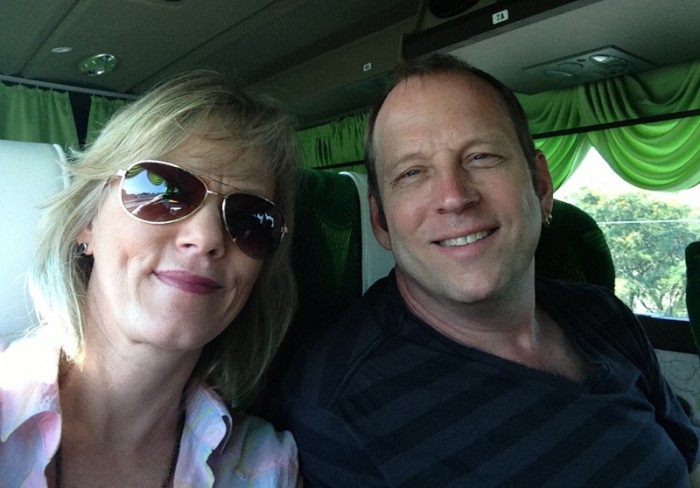
On the bus to Tanah Rata, Cameroon Highlands
***
How does a traveler know when a journey ends? Each journey has a lifespan. Sometimes the longevity is determined by the built-in end date of a return air ticket. Often, it’s when the money runs out and you have only the plane ticket left.
My brother-in-law, Daniel Gabriel, that traveler and writer who went to Europe with his folks when he was five weeks old and spent the following 60 years going back on the road as often as could be managed, remembers landing in San Francisco after traveling around the world for a year. He and his wife Jude had $12 between them and no way to get home to family in Minnesota.
Bad planning? I don’t think so. I think instead that it is the choice to wring one more day or week out of a trip that makes it a life well-lived.
Occasionally, fate or foolishness puts an unexpected end to your trip. My grandfather took one trip outside the USA in his entire life, when he was 22. Three days after arriving in Mexico, he and his brother were shown to their cell in a Tijuana jail. Once that lesson ended, they were escorted back across the border and never returned.
For long-term travelers, the choice to move on often comes in a slow reveal and can be difficult to recognize.There have been times when Brian and I have been traveling for months and began to crave, as he put it, “the predictability of a routine and the comforts of familiarity.” When we start to notice that we are no longer seeking out new adventures and begin to close ourselves off from input, it is time for a change. Sometimes the best change is going home, whatever that may mean for you.
***
At age 90, in the depth of a Minnesota winter, Elaine was hospitalized with pneumonia and ultimately, congestive heart failure. The call went out to our far-flung family members: try to visit soon if you can; she might not survive the week. With her beloved family around her hospital bed, Elaine rallied. Doctors were amazed. They put her on a strict regimen of no desserts. I smuggled in lemon meringue pie; she and I ate huge pieces of our shared favorite.
The doctors gave Elaine goals to achieve before releasing to go home to the lake. Using a walker she had to take 100 steps down the hallway and back to her room. Not exactly a three thousand-mile journey to Panama, but a travail nonetheless. The pull of home and family renewed her strength and she was allowed to go home for hospice care.
In the midst of Elaine’s illness, Brian and I were scheduled to fly off to Southeast Asia. Our travel plans included exploration of Malaysia’s tropical coasts and spicy foods as well as its cool highlands with tea plantations stretching for miles. Next we would fly to Bali and spend time around Ubud, taking in the beauty of the countryside and a little of the spirit of the kindest people on the planet. We were torn with doubt about leaving while Elaine was ill, imagining what might happen if we were halfway around the world and her condition worsened.
Elaine had no doubts though, and told us in as firm a voice as she could muster, “You must go. Take your trip together and don’t come back until you are scheduled to,” emphasizing those words with a firm grip on our hands.
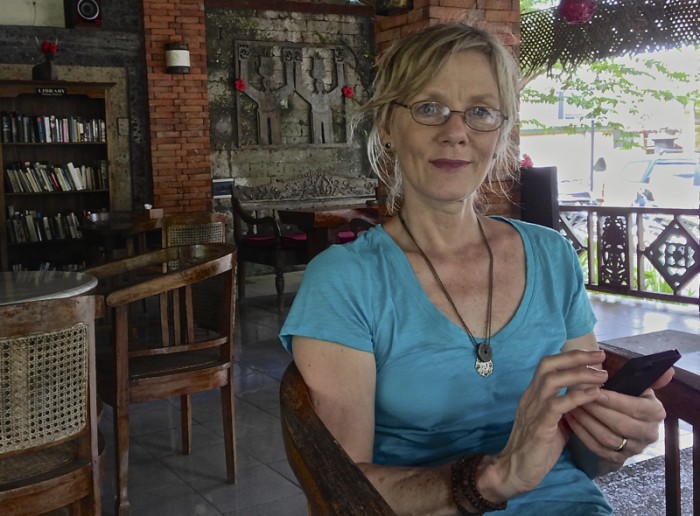
Keeping in touch with family, Ubud, Bali
We flew one week later to Singapore. Elaine was on my mind as our train rolled through the banana and mango plantations of Malaysia. We kept in touch with family via email and social media, which helped to ease our minds. Later in the trip, Bali was an incredible gift and lifted our spirits high. Elaine hung on.
***
Perhaps illness has taken away your own ability—or your will—to travel. Could be finances that restrain you. Or maybe travel makes your heart beat but you meet someone whose stars align with yours, only to discover they don’t share your passion for wearing wrinkled clothing that has been wadded tight into the corner of a bag; for cadging travel-size shampoo from hotels. Your trusty travel pack gets hidden away in the attic where it cannot make accusations of abandonment.
It may be that you have some babies, who have their own stuff to lug around and besides, no one likes someone else’s kids on planes or trains, so you stay put. Because it never occurs to you to think, Hey, there are babies in Paris, or Kathmandu, or Texas.
Even if you work through all those difficulties and push yourself to get out on the road again, eventually you will find yourself confronting the possible end of your journeying. What does that look like?
“I see us adapting to physical limitations,” my husband tells me. “Rather than curl up in a sarong on the ground to sleep, we choose a nice hotel. Instead of long, cross-ocean flights, we can explore closer to home.” Brian has always pushed against adding those layers of comfort that people generally pay for when they travel, like multi-star hotels or group tours, but insists, “we have to launch ourselves out there to discover what the possibilities are.”
My brother-in-law, Daniel’s travel style has adapted over the years, from nimble open-ended journeys with life-long travel partner and wife, Jude, through “learning to find satisfaction in shorter time frames” once they started a family. As for future travels, Daniel says, “While I’m aware that even the most ardent traveler must one day hang up their walking shoes, I’m certainly not growing bored or jaded by the remaining possibilities. If we only have today, how do we mimic a day on the road?”
As their children have grown to adulthood his wife, Jude anticipates a new point of departure for the two of them. “I can’t envision not traveling at this point, as we have longingly waited to get back on the road…to make up for lost time.”
***
Shortly after our trip to Southeast Asia, Elaine found herself bed-bound once again, and in a lot of pain. As she readied herself for her final journey, family members gave her what we thought were reassurances.
“You don’t have to hang on for us,” we told her, “whenever you are ready, just…go.”
Elaine answered with a combination of humor and honesty: “But, I don’t know how.” A few days later she got it figured out, and passed in her sleep.
When someone we love dies, our tendency is to stick close to home. To gather around our remaining loved ones and friends and hunker down.
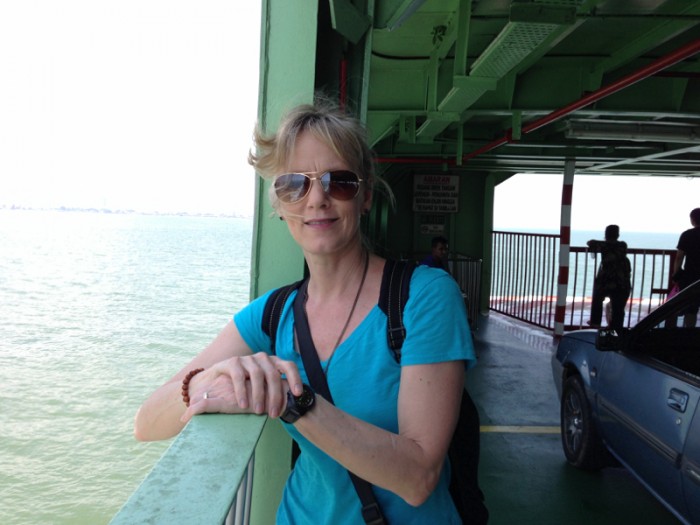
Barbara on car ferry, Penang Malaysia
But the traveling soul cannot be held in that state of fear long. Maps of unexplored regions begin to sing siren songs that only we can hear. Wings, invisible to anyone comfortable in their recliner, sprout from our feet, urging us to flight. So we dream, we plan, we pack. And we depart once again on a looping route of our own.
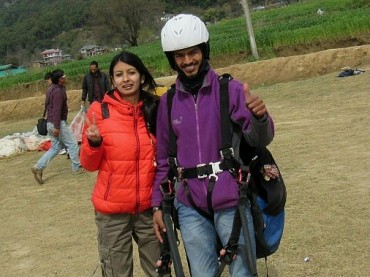
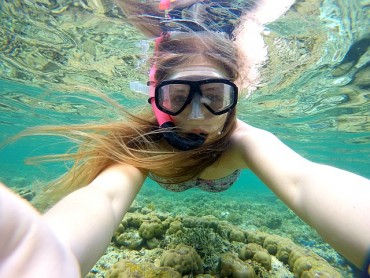
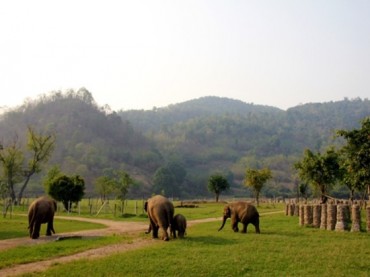
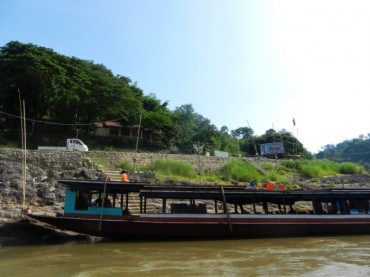
Absolutely beautifully written Barb! You tenderly wove Elaine’s life into the traveler’s life-passion. Today marks five weeks since I had a knee replacement….too many days hobbling around the house or shuffling to PT. After reading this I grabbed my cane and keys marched around the snowbanks out to the car started the ignition, practiced a few safety moves, tossed the cane in the back and drove away….down the road!!! What a sense of going someplace! Thanks!
Congrates and cheers,
Jude
Hi Jude,
Glad to have you up and traveling again, no matter how short the journey or the destination. Thanks for reading, Barbara
Thank you for this beautiful article. I read it after a day of hiking at the south end of the beautiful and extremely varied “string bean” of Chile. So many travelers now are either very young or now retired. It is rare to find folks that have built travel into the years of raising children and working. I wish more people had both the internal and external resources to travel farther and learn first hand how we are all here on this precious planet together… Mindy
“Hiking” is one of my favorite words, as well as transportation modes. And Chile! Good for you, Mindy.
I echo your beautiful sentiment about wishing people had the resources available to them to travel further and learn more.
Thank you so much for reading and for sharing your own travels.
Barbara
Oh Barb, this was such a great read! I was in tears half the time. So lovely to see your comments on Mormor and Granddad travelling. I can just picture Mormor making little while friends at every island stop. I think it was just before that trip that they visited us in Bolivia for three months of buses/traines/planes and more to explore every inch of South America. Never too old or feeble for an adventure. We dream, we plan, we pack. Cheers
Thanks, Megan! You are a true member of the traveling tribe. From Kenya to India, Europe to the Caribbean, you have your own stories to tell. Looking forward to hearing more of them from you.
Barbara
This brought a couple of tears to my eyes. We have been adopted into this traveling family and are learning about the joy that you all find in your interesting adventures. We got to know Elaine a little bit, and we found her to be such a wonderful person, and this is more insight into the amazing life she and Marsh have lived. It was so beautifully written, and we now know our wonderful daughter-in-law better. She and Bo will no doubt have more wonderful adventures of their own!
Hello Beverly,
Thanks so much for your lovely compliment and for reading and traveling along with us. Happy to have helped you to understand your daughter-in-law and to see you appreciating the love for travel that we share.
Safe journeys,
Barbara
I’ve had this bookmarked on my phone for months and finally let myself read it.
I loved how you expressed the joys and burdens of traveling! I’m so grateful for the family I’m in and am even more thankful for the wisdom of traveling that has been passed down through generations.
I am so glad you took the time to read the article, Emily, and to share your thoughts here. Thank you.
So beautiful! My Father is currently in not doing so great. I came home from the other side of the world to spend some time with him. He is well and in fact I feel my cheery self gave him and the whole family a boost. Though now I am back on the road my thoughts are constantly with him. My family know what I am like. A traveling soul. I will be on a boat for the next few months with limited connection to internet and even phone!
Reading this beautiful piece of work made my heart happy. Made me cry a bit too. Elaine had such a wonderful life. Thank you for sharing her beauty with us all. I greatly appreciate it and feel she is an idol for me now.
Thank you x x
Marsh Gabriel says:
Your comment is awaiting moderation.
June 24, 2016 at 8:08 pm
Barb! I just came across this today after so recently discovering “Ezra’s Offspring” hiding behind a Windows 10 box labeled “Forum.” It is an accurate description of the Elaine persona and world oriented outlook that helped me realize, though not “love at first site” but within an hour and a half, that this was the girl I was going to marry. (and so I wrote my parents that afternoon, and so it happened.)
We were in synch certainly in a life of world travel and adventure, and in all important respects — and there was not a split second in our 64 years that I wished I had married someone else.
MARSH